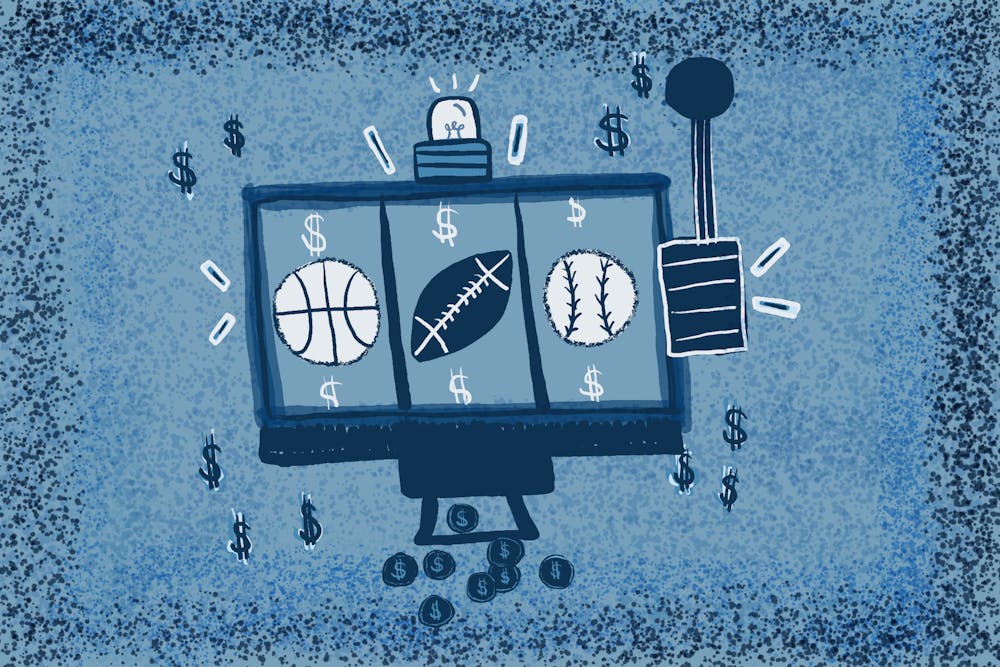The North Carolina State Lottery Commission voted unanimously on Wednesday to launch legalized online sports gambling in North Carolina beginning March 11 — the night before the Atlantic Coast Conference men’s basketball tournament.
House Bill 347, called Sports Wagering, which Gov. Roy Cooper signed into law last June, permits individuals at least 21 years old to wager online for professional, collegiate and amateur sports and horse races.
Some experts are concerned that the law could make college students vulnerable to developing gambling addictions because of the significance sports have on college campuses.
The announcement came several years after the Supreme Court’s 2018 decision in Murphy v. National Collegiate Athletic Association — which struck down a federal law originally banning sports betting within most U.S. states. In the wake of the ruling, over two dozen states passed laws permitting sports gambling, with North Carolina now the 30th state to legalize online sports bets.
In-person sports betting is currently restricted to three casinos located on Cherokee and Catawba tribal lands.
With online sports gambling set to be legalized in March, up to 12 online sportsbooks, including online applications from the Cherokee and Catawba nations, may now become available for gambling.
James Whelan, the executive director of the Tennessee Institute for Gambling Education and Research said he thinks younger cohorts are especially susceptible to gambling disorders due to the prevalence of advertising and higher using of technology like smartphones.
Whelan said students who gamble problematically are more likely to have difficulty completing classes, drop out of classes and contemplate dropping out of school. There are also correlations between gambling and mental health disorders, he said.
“The idea of placing bets is just not a hard thing to do,” Whelan said. “One, you have a belief you could be good at it. The second thing is it’s easy to do. You don't have to drive somewhere.”




